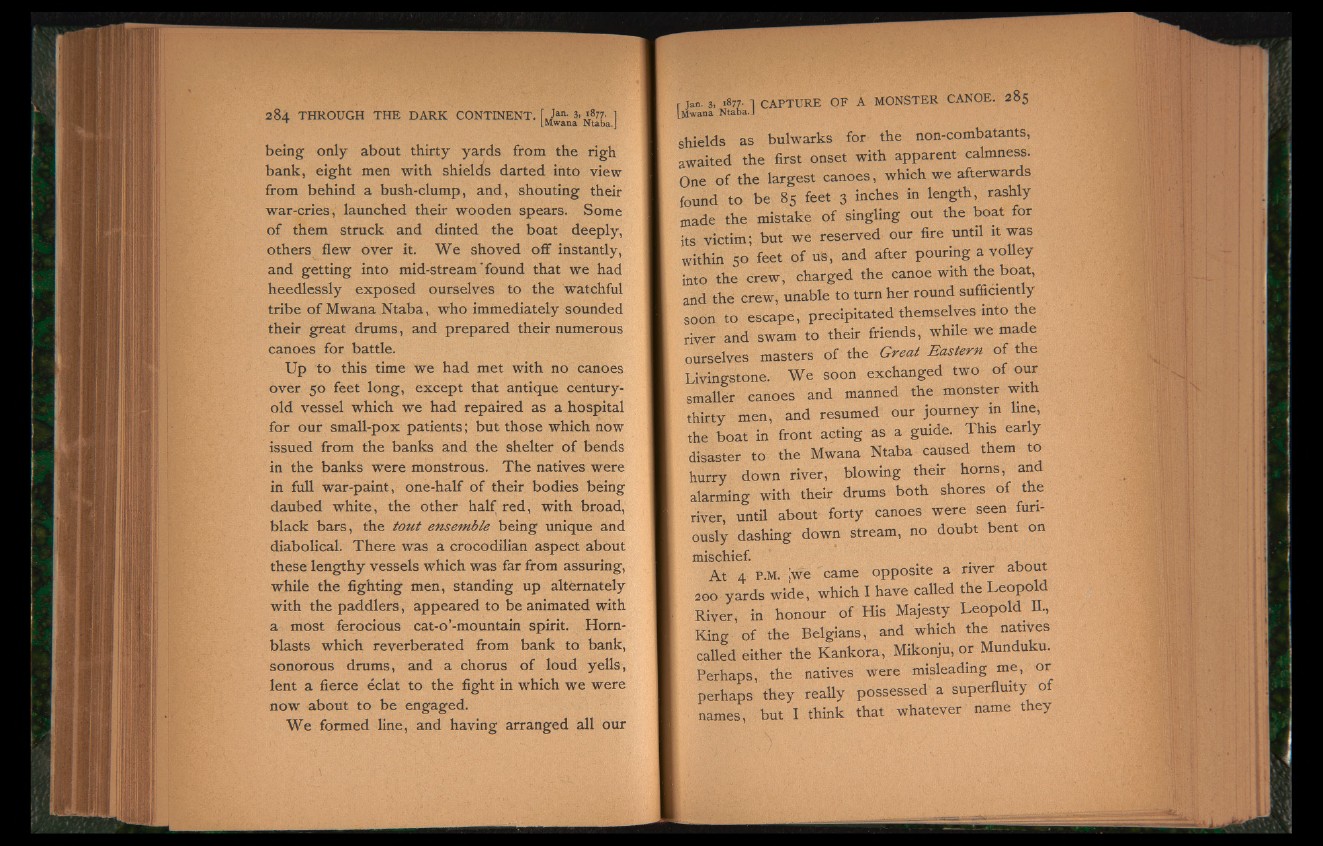
being only about thirty yards from the righ
bank, eight men with shields darted into view
from behind a bush-clump, and, shouting their
war-cries, launched their wooden spears. Some
of them struck and dinted the boat deeply,
others flew over it. We shoved off instantly,
and getting into mid-stream’ found that we had
heedlessly exposed ourselves to the watchful
tribe of Mwana Ntaba, who immediately sounded
their great drums, and prepared their numerous
canoes for battle.
Up to this time we had met with no canoes
over 50 feet long, except that antique century-
old vessel which we had repaired as a hospital
for our small-pox patients; but those which now
issued from the banks and the shelter of bends
in the banks were monstrous. The natives were
in full war-paint, one-half of their bodies being
daubed white, the other half red, with broad,
black bars, the tout ensemble being unique and
diabolical. There was a crocodilian aspect about
these lengthy vessels which was far from assuring,
while the fighting men, standing up alternately
with the paddlers, appeared to be animated with
a most ferocious cat-o’-mountain spirit. Horn-
blasts which reverberated from bank to bank,
sonorous drums, and a chorus of loud yells,
lent a fierce eclat to the fight in which we were
now about to be engaged.
We formed line, and having arranged all our
shields as bulwarks for the non-combatants,
awaited the first onset with apparent calmness.
One of the largest canoes, which we afterwards
found to be 85 feet 3 inches in length, rashly
made the mistake of singling out the boat for
its victim; but we reserved our fire until it was
within 50 feet of us, and after pouring a volley
into the crew, charged the canoe with the boat,
and the crew, unable to turn her round sufficiently
soon t o escape, p r e c i p i t a t e d t h e m s e l v e s into t h e
river and swam to their friends, while we made
ourselves masters of the Great Eastern of the
Livingstone. We soon exchanged two of our
smaller canoes and manned the monster with
thirty men, and resumed our journey m line,
the boat in front acting as a guide. This ear y
disaster to the Mwana Ntaba caused them to
hurry down river, blowing their horns, and
alarming with their drums both shores of the
river, until about forty canoes were seen furiously
dashing down stream, no doubt bent on
mischief.
At 4 P.M. ¡we came opposite a river abo“
200 yards wide, which I have called the Leopold
River, in honour of His Majesty Leopold H,
King of the Belgians, and which the natives
called either the Kankora, Mikonju, or Munduku.
Perhaps, the natives were misleading me, or
perhaps they really possessed a superfluity o
names, but I think t h a t whatever name they